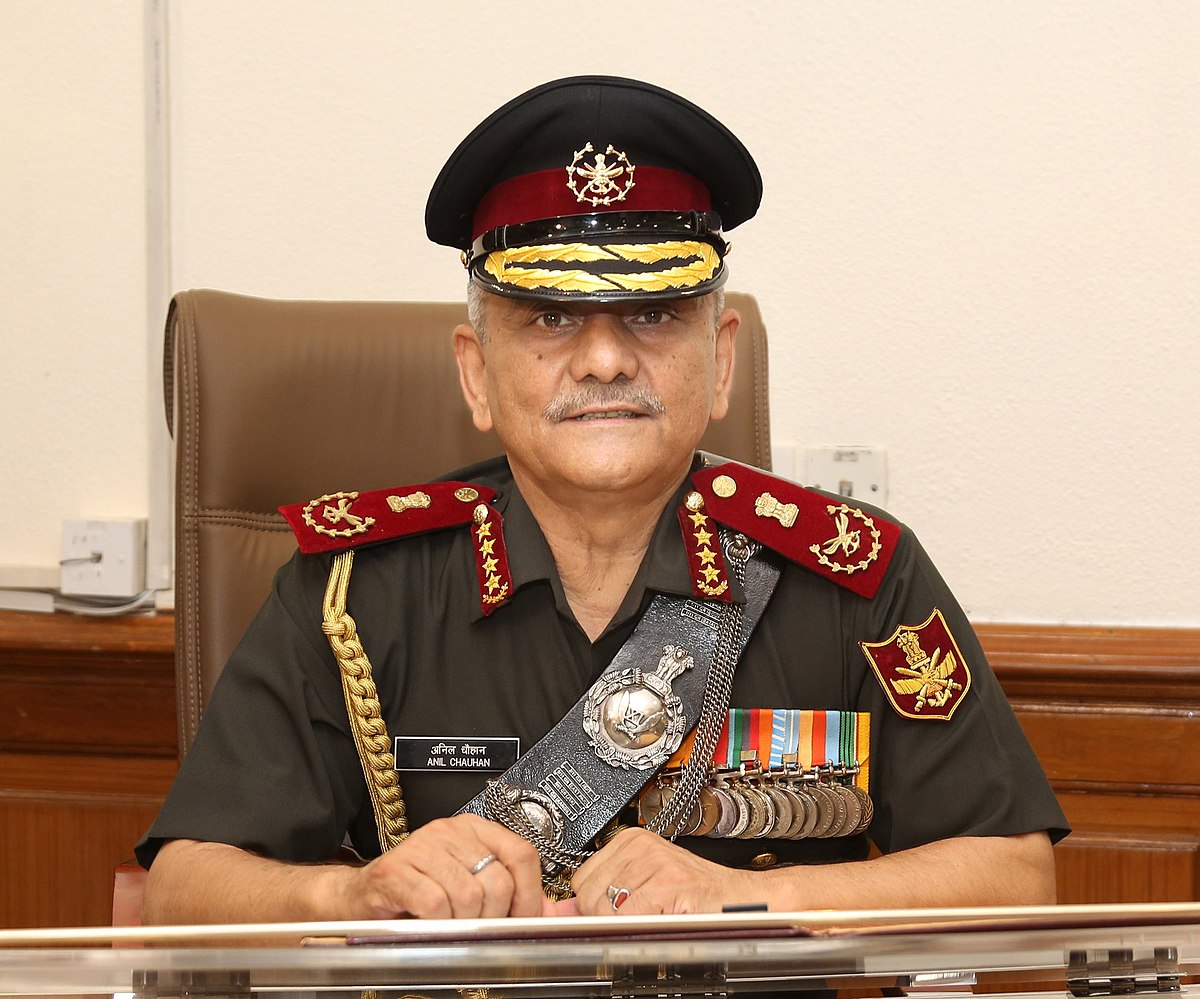The post of Chief of Defence Staff (CDS) which had been vacant for nine months after the tragic death of India’s first CDS General Bipin Rawat in a helicopter crash last December, has got a new appointment as Lieutenant General (Lt. Gen.) Anil Chauhan (retd.) on 30 September. As CDS, Gen. Chauhan will also function as the Principal Military Adviser to the Defence Minister on all tri-service matters as well as head the Department of Military Affairs as Secretary. In addition to these, he will be the permanent Chairman of the Chiefs of Staff Committee (COSC).
Born on 18 May 1961, Lt. Gen. Anil Chauhan was commissioned into the 11th Gorkha Rifles, the same regiment that the former CDS was part of.
The selection took four months after the government amended the Army, Navy, and Air Force rules in early June to widen the eligibility criteria for fulfilling the top post; new rules allowed retired three-star officers to be eligible for the prestigious post.
It is for the first time in the history of the Indian Army that a three-star officer has been brought back from retirement to take charge of a four-star rank.
Who is General Anil Chauhan?
As an alumnus of the National Defence Academy (NDA), Khadakwasla, a 1981 alumnus of the Indian Military Academy (IMA) Dehradun, Chauhan was commissioned as a second lieutenant into the 6th Battalion of the 11th Gorkha Rifles (6/11 GR) based in Lucknow. Gen. Chauhan, in his career spanning over four decades, has held several commands, and has had invaluable experience in counter-insurgency operations in Jammu and Kashmir and North-East India.As part of his duty as Major General, he commanded an infantry division in the Baramulla sector in Jammu and Kashmir and the Dimapur-based 3 corps as the Corps Commander. Later as Lieutenant General, he commanded a Corps in the North-Eastern India and subsequently became the Eastern Army Commander in September 2019. In this duty he ensured that the army’s focus shifted from counter-insurgency to conventional tasks along the Line of Actual Control (LAC) as Operation Snow Leopard was underway in Eastern Ladakh. In this operation, the Indian Army dedicated three months entirely for planning before it executed the operation to control key heights along the LAC in eastern Ladakh. The role of Gen. Chauhan was crucial in this operation which is still in progress. He held charge of the Eastern Army Commander until he retired from service on May 31, 2021.In addition to these command appointments, Gen. Chauhan has also served as Director General of Military Operations (DGMO). As the DGMO he was in charge of ‘Operation Sunrise’, which consisted of coordinated operations undertaken jointly by Indian and Myanmar armies on insurgent groups taking shelter across the border. The operation was particularly important in eradicating North-East India’s insurgencies and it turned out to be highly successful. He had also contributed to the Naga talks in consultation with the then-Governor of Nagaland.In fulfilling his duty as DGMO at the Army Headquarters from January 30, 2018 to August 31, 2019 when Gen. Rawat was the Army Chief, he was closely involved in India’s response to the Pulwama terror attack. The assault which involved India’s north-western neighbour resulted in the death of 40 Indian security personnel. It was avenged in the form of Balakot air strike on February 26, in which Gen. Chauhan had a role to play.Post retirement, Gen. Chauhan took charge as the Military Adviser in the National Security Council Secretariat (NSCS), where he was working closely with National Security Adviser, Ajit Doval.
Personal Life
Having immense experience in resolving border issues, Gen. Chauhan has shared his understanding of his life’s journey in his two books – ‘Aftermath of a Nuclear Attack’, and ‘Military and Geography of India’s Northern Borders’. As per sources close to him, he is known to be a consistent golf player and a passionate collector of masks.
Challenges That Lie Ahead
The post of CDS is still evolving; the groundwork was done by the former CDS, and Gen. Chauhan has to take forward from where he left off. The priority will be to reorganise the armed forces into theatre commands meant to bring in synergy and optimise resources. Secondly, being an expert in Indo-Chinese affairs, his experience will help his country in resolving border issues with China. Thirdly, he will take care of modernisation of forces as the vintage weapons need replacements. Lastly, one of his key responsibilities is to stop cross-border terrorism emanating from Pakistan. Citizens of the country are hopeful that the new CDS will usher in new possibilities and a new perspective of functioning in the three wings of defence.

